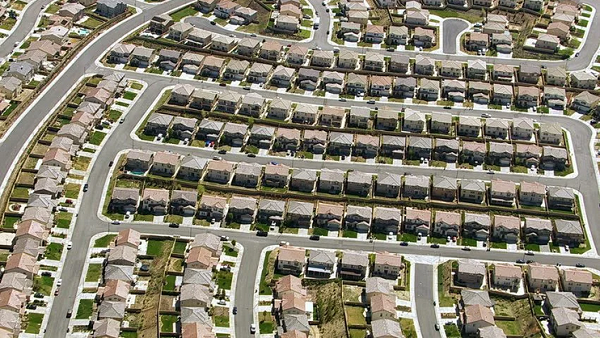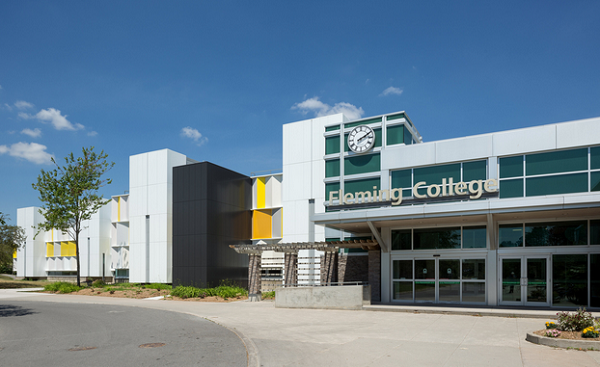An increase in the number of first-time home buyers could make prices jump 6% this year
Over the past several weeks Toronto-based realtor Grace Chan has suddenly received calls from people she tried to help two years ago: first-time homebuyers.
It’s a segment of the market that was noticeably absent last year, having called off their search as prices soared during the height of the pandemic. Now that the market has settled — as prices and interest rates have stabilized — first-time buyers are eager to jump back in.
“There are people who I’ve been in touch with over the last two years and were looking when the market was hot,” she said. “But now they feel more secure in the purchase with the uncertainty during COVID subsided.”
Sales typically pick up during the spring market, and experts say the number of sales this spring will likely resemble 2019-levels, not the pandemic highs of 2021 and 2022. It’s a forecast that can partially be explained by who is and isn’t taking part — over-leveraged investors are now sitting on the sidelines while first-time homebuyers have returned, lured by a resurgence of new listings and the promise of an expectant interest rate cut.
“In 2023, the segment of buyers missing were first-time homebuyers,” said Phil Soper, CEO and president of Royal LePage. “Now they’re more capable of entering the market. And the group of buyers who are waiting for interest rates to drop is declining more and more as each day passes. Activity is good, but it’s not ridiculously good. It’s not what we saw in 2021 and 2022 where people came out in droves.
“It’s a return to more historical norms.”
Homes that go up for sale in desirable neighbourhoods such as the Annex or Leslieville continue to sell quickly, Chan said, and new listings are flooding the market as sellers finally see renewed interest compared to last year, which had the lowest number of sales in more than 20 years.
“More units are entering the market, there’s more choice for buyers,” Chan said, “but people are still being careful. There’s still uncertainty around when interest rates will drop.”
The one area that may catch fire is the preconstruction condo market. While freehold properties continue to perform well in the city, with some even attracting bidding wars, the condo market continues to find its footing with trouble ahead for preconstruction units as appraisals come up short. It could result in hundreds of marked-down units entering the market leading to a buying frenzy down the road.
Prices stay sticky
Home prices in February remained sticky compared to the same time last year, increasing by a modest 1.1 per cent, according to the Toronto Regional Real Estate Board (TRREB).
Since the February 2022 pandemic peak, prices have dropped by almost 20 per cent, falling from an average of $1.33 million to $1.1 million last month as the Bank of Canada raised rates. Prices have since stagnated as sellers have been unwilling to price their homes to the new realities of the market, hoping to sell their property close to the pandemic heights.
Over the course of 2024, Royal LePage forecasts that prices in Toronto will increase by around six per cent, in line with annual historical norms, said Soper.
“Prices have likely bottomed out and as soon as buyers felt that home prices had ended their descent it brings a certain number of people back into the market,” he said. “We won’t see the annual price gains in the double-digits, which is what happened during the pandemic. That is highly unlikely.”
Sales and new listings up
An increase of new listings is leading to a more balanced market, but the volume is “relatively normal,” said John Pasalis, president of real estate brokerage Realosophy. It just seems significantly higher because activity was “so low” last year.
In February, new listings increased by 33.5 per cent year over year and sales jumped by almost 18 per cent, according to TRREB. There were 11,396 new listings in February which is in line with the 10-year average of around 11,200.
“Many buyers hit the sidelines in the second half of last year,” he said. “There was a big issue in 2023 of affordability as interest rates hit the six per cent range.” Now, fixed rates have dropped to the five per cent range resulting in some optimism for buyers.”
At this time, mostly end-users are jumping into the market, Pasalis said, as investors need to be well capitalized to shore up more property due to substantially higher carrying costs. It means there will be less froth in the market, especially when it comes to bidding wars, which will be more in line with buyers’ incomes.
Soper said activity has returned to 2019-levels, when the market was balanced. Sales in February 2019 were around 5,000, similar to February 2024 levels.
Condo market turns around
Last year, the condo market saw over-leveraged investors unload their units resulting in price depreciation, but that’s starting to turn around in the condo resale market, said Tim Syrianos, principal broker and owner of Re/Max Ultimate Realty.
“The freehold market is tight, some homes are getting 80 to 100 showings,” he said. “Once that segment of the market becomes too tight it trickles down to the next affordable segment, which is condos.” It’s also the entry-level home for first-time homebuyers who are starting to come out of the woodworks, he added.
But it’s a different story for preconstruction units, he said, which are struggling to get appraisals in line with what they paid, causing significant losses for the
“For this market you have people who bought four to six years ago and now the appraisal is coming up short,” Syrianos said. “It’s causing a lot of strain on people when it’s time to close.”
Some preconstruction buyers are walking away from their units, added Chan, which could result in a flood of units coming to market at significantly marked-down prices over the next year.
“It could lead to a buying frenzy,” she said.
New build shortfall
High interest rates, rising construction costs and labour shortages have plagued new builds, in terms of sales and construction, which slowed down considerably in 2023, experts say.
A study from the Canadian Centre for Policy Alternatives found that fewer homes are being built today compared to the lowest point in the pandemic — the 2020 lockdowns. Because it takes years between the initial planning phase and freehold and condo new builds coming to market, there will be a significant shortfall of much-needed housing in the future.
It’s unlikely there will be a marked increase of new builds in the spring market, expert say, but there’s hope that once rate cuts arrive it will help with production.
“Every politician is talking about building more housing,” Syrianos said. “There’s been a modest bump in new builds but it’s not enough to keep home appreciation in the single digits.”
This article was first reported by The Star















